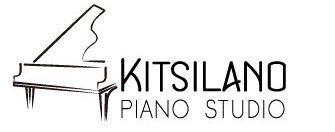You are dying to learn the piano, and your fingers are fidgeting at the thought of manipulating the white and black keys. Yes, but here you are, you have stopped there in your process. What turns you off is this dreaded music theory. So, you are procrastinating, putting aside your thirst to learn how to use this instrument. Can we still play the piano without knowing music theory? The answer is yes! In many cases, mastering music theory is not an obligation: it all depends on the style of music.
What is the method for learning the piano without music theory?
Do you want to learn to play some pretty Latin music or some wild rock? You have understood that it is possible to learn to play these tunes without music theory, for pieces that are not classical music. How to proceed?
Method for playing the piano without music theory
In fact, there are several methods: on the internet, you will indeed find different sites, which will surely tempt you. The principle common to these formations is to gradually learn the chords of which we spoke above, thanks to the diagrams of placement of the fingers in particular. You also follow the instructions, little by little, until you have mastered the first piece. DVDs or videos online (on YouTube, for example) are very meaningful because they visually represent the gestures that you must reproduce. CDs or MP3 files can accompany the learning method. These techniques rely on your ear and your sense of observation. You listen to the music to be studied; you watch the examples and exercises on the videos and then reproduce the gestures by following the recommendations to obtain the same chords and the same melody.
You will of course learn to combine your two hands to play. Some methods also offer you to practice your piano piece while listening to it in the background, to better discern the notes and the rhythm. Regardless of the method chosen, the goal remains to allow you to quickly play your favorite styles of music on the piano and that you can customize your playing, by feeling, since this type of music allows it. The choice of method will be your own, depending on the offers of the moment of course, but above all depending on the pedagogy offered, the budget, and the time you have set for your learning.
Do you want to go further?
After a few months or years, you may very well want to revise your ambitions upwards and to interpret, why not, pieces of classical or more technical music. Maybe you want to join a group of musicians playing different instruments and you are asked to know the theory. Or, quite simply, you want to progress in your learning of modern music because you now have mastered the basics of playing a popular piece. In this case, you can of course start to learn music theory.
This is a plus, regardless of the music played. Curiosity is a big advantage for your motivation: take learning music theory as a game. You will see that it is not that complicated! It takes a little time, but ultimately you will be able to read music theory as you do your crossword: in a fun way. Music theory will always constitute substantial baggage for learning the piano.
Even if you are an amateur musician, you can learn to play the piano without music theory. The proof is many professional musicians rely solely on their ears to perform great music. It works a bit like learning a foreign language: we recognize its sounds as we go, we learn them, we train and then we know how to pronounce them. You can therefore work directly on the piano from the start of your learning, by building the chords requested.
Indulge yourself in playing the piano and it will be easier for you to learn to master your playing on your favorite melodies. All you have to do is choose the method, which will suit you, according to your aspirations, your budget, and your schedule. Also, check out our tips on how to learn piano quickly!
